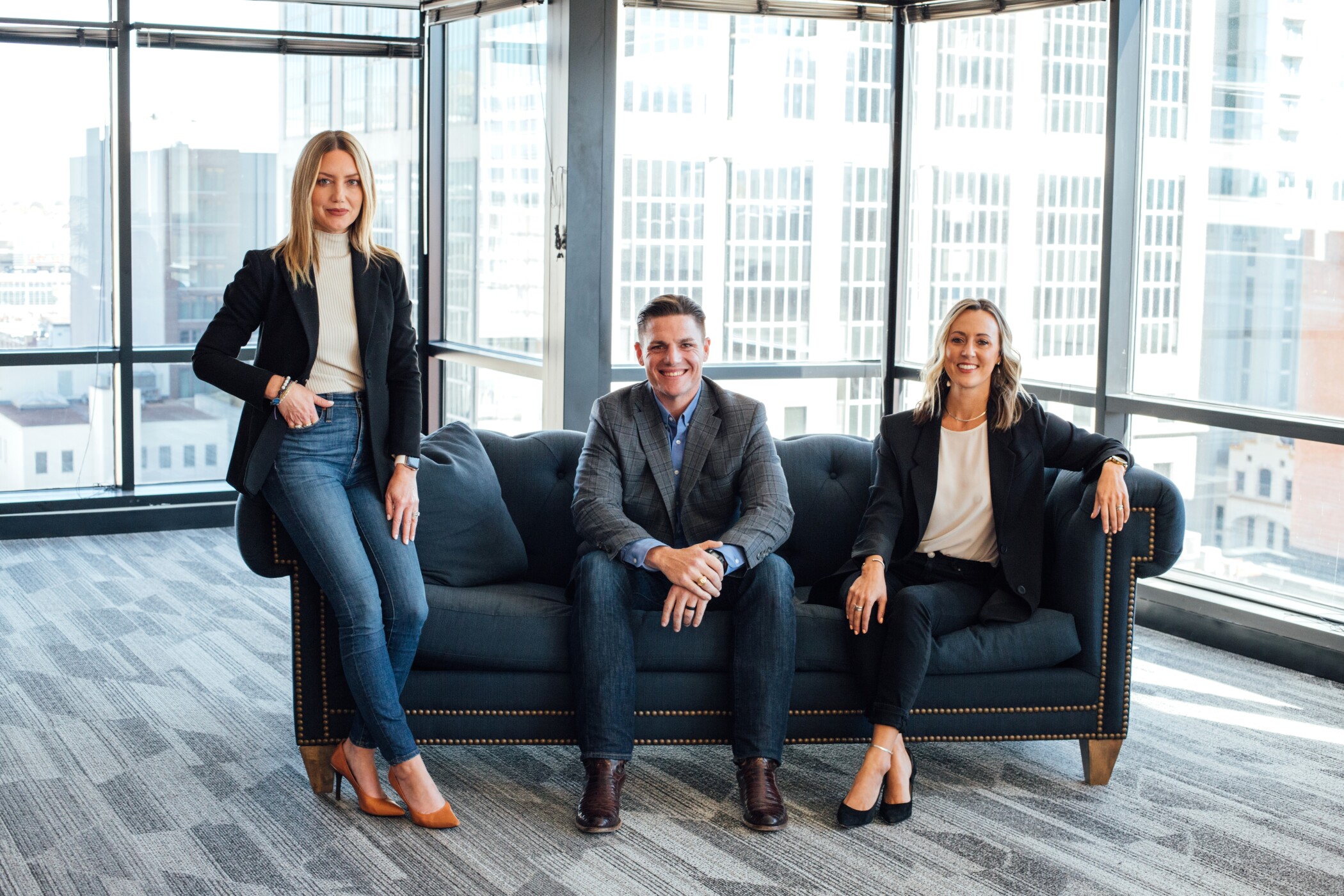While some people are having less to do with offices these days, commercial real estate broker Casey Flannery is getting out completely.
If there's ever a bellwether of what's going on in commercial real estate, it's Flannery. She's happily scrapping several years of knowledge she gained in tours of spiffy office buildings with nice company kitchens and cool rooftops for the grittier world of off-white warehouses and distribution centers with uncovered beams and concrete floors.
And she said she couldn't be happier with that shift: "As we know, office has been unique these past couple of years," Flannery said in an interview, referring to the property demand shift toward warehouses and away from offices as a result of remote working in the pandemic. "And so I figured if there is any time to make a change, why not just do it now, learn something new?"
She finally took up a longstanding offer from Melissa Alexander, a former colleague and good friend with whom Flannery hosts a monthly online discussion called #CREchat, to join the Foundry Commercial industrial team in Nashville, Tennessee. For Flannery, that meant changing not only property types and leaving Cushman & Wakefield Commercial Advisors for Foundry but moving, too. She's in the process of relocating from Memphis to Nashville, just over a three-hour drive away.
Alexander had been asking Flannery to move for some time, and asked again when Flannery stopped by Alexander's Nashville home during a recent trip to Music City. "This time, I was like, well, I guess more seriously considering it and thinking, 'Why not?' I know you're busy. I know you've been successful, and I'm coming from the office world," Flannery said.
The office world has changed dramatically since Flannery started her career about seven years ago. The pandemic has upended the traditional assumption for now at least that workers would be in the office for eight hours or more every day of the business week, making some calculations for office demand seem out of sync. Recent Kastle Systems data showed an office usage rate of 49% based on employee keycard swipes in those buildings the security firm works with in 10 of the largest cities, according to a report the firm released Oct. 17.
Office Versus Industrial
The current economic instability has exacerbated the situation and partially stymied the U.S. office market. "As economic headwinds intensified in the third quarter, tenants adopted more defensive leasing postures, generally halting expansion plans or downsizing footprints to navigate the growing threat of recession," JLL said in an Oct. 12 office market report.
On the flip side, the U.S. industrial market had growth over the past two years as demand for warehouse and fulfillment centers increased because people did more of their shopping online. Only recently has the market cooled as the U.S. industrial vacancy rate ticked up slightly in the third quarter to 3.2% from 3% at midyear as leasing slowed and developers completed a record 148 million square feet of mostly speculative space, according to Cushman & Wakefield's third-quarter 2022 industrial market report.
The record amount of new industrial construction provides an opportunity for brokers such as Flannery who market and lease warehouses and distribution centers. Moreover, in Nashville, Alexander said her team continues to see strong demand of industrial space and has added some 4 million square feet of leasing assignments "just through grinding over the last four years."
"It's crazy good. It's unimaginable," she said. "It's still record-low vacancy, still a lot of tenant demand. There's a ton of population growth, which is what seems to be driving a lot of industrial demand these days. I would say probably half of our requirements, if not more, are coming from out of market."
In joining Alexander's team, Flannery has reunited with the person who helped get her into the brokerage world when Alexander worked at Cushman & Wakefield Commercial Advisors. Flannery started there as an intern for six months and then signed on full time in an administrative coordinator position, later transitioning into brokerage.
In 2018, Alexander left the firm and Memphis for her current job at Foundry in Nashville. Alexander and Flannery stayed close and continued to host their CREchat. The online platform where commercial real estate professionals network and share tips and industry trends takes place monthly on Twitter. On top of that, they both ended up naming their dogs Ollie, and not by design.
As for her female-led industrial team, "we're breaking barriers, not intentionally, but we have," Alexander said. "We broke barriers with CREchat, and this industrial team has basically formed from the ground up. It's not like I came to Nashville and just started working under somebody. It was like a lot of blood, sweat and tears. And so I think it's really exciting because it feels like a new generation of how you can do brokerage."
Flannery, who figured she'd move to New York after college and work for an ad agency, said she's ready to master the Nashville industrial market and settle into her new city.
"I'm really excited to be working with Melissa in a professional capacity and joining the national industrial team" that includes veteran W.B. Scoggin, said Flannery, who earned her bachelor's degree at Middle Tennessee State University about 35 miles southeast of Nashville. She grew up in Memphis, lived in Nashville for six months after graduating from MTSU and then moved back to Memphis in 2012.
"I'm excited to work with both of them and be on a team, learn something new and start a new chapter in Nashville. It's not quite going back home, but I'm going back to an area that's familiar to me," she said.

